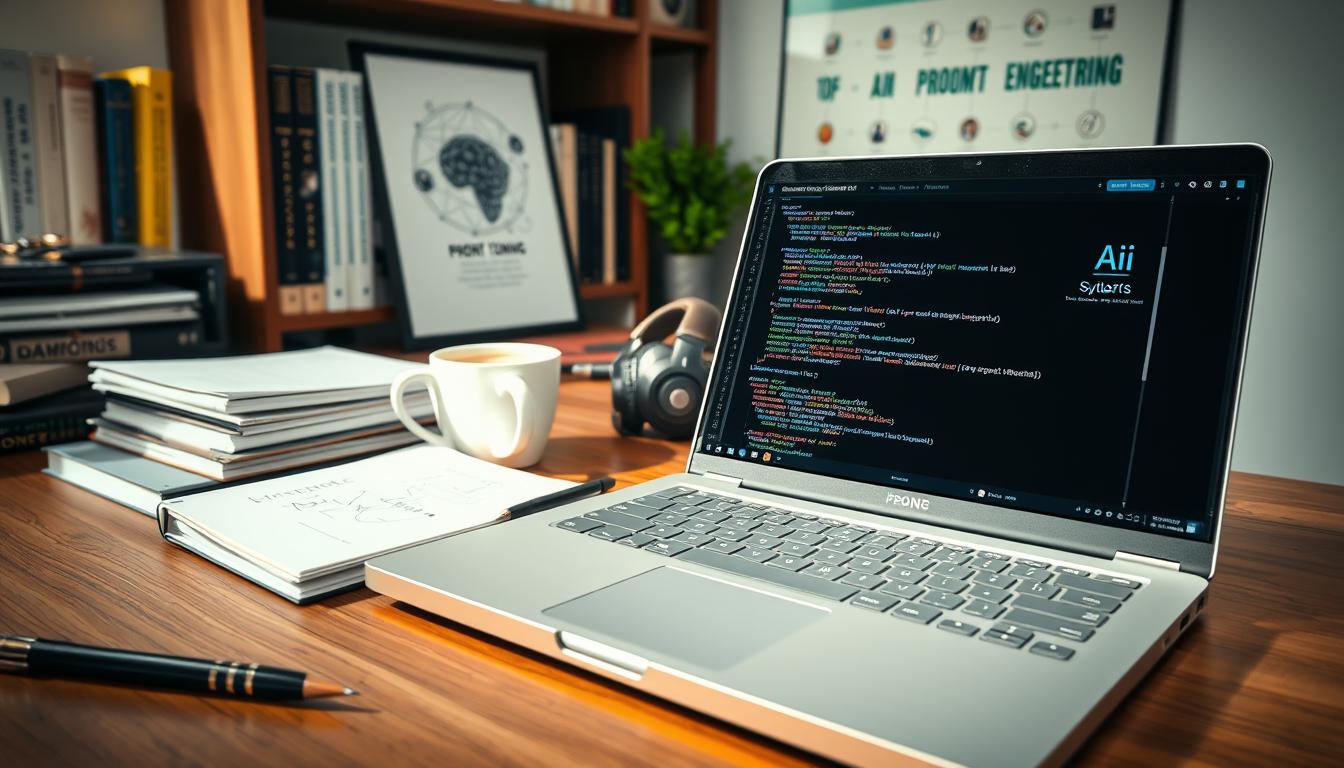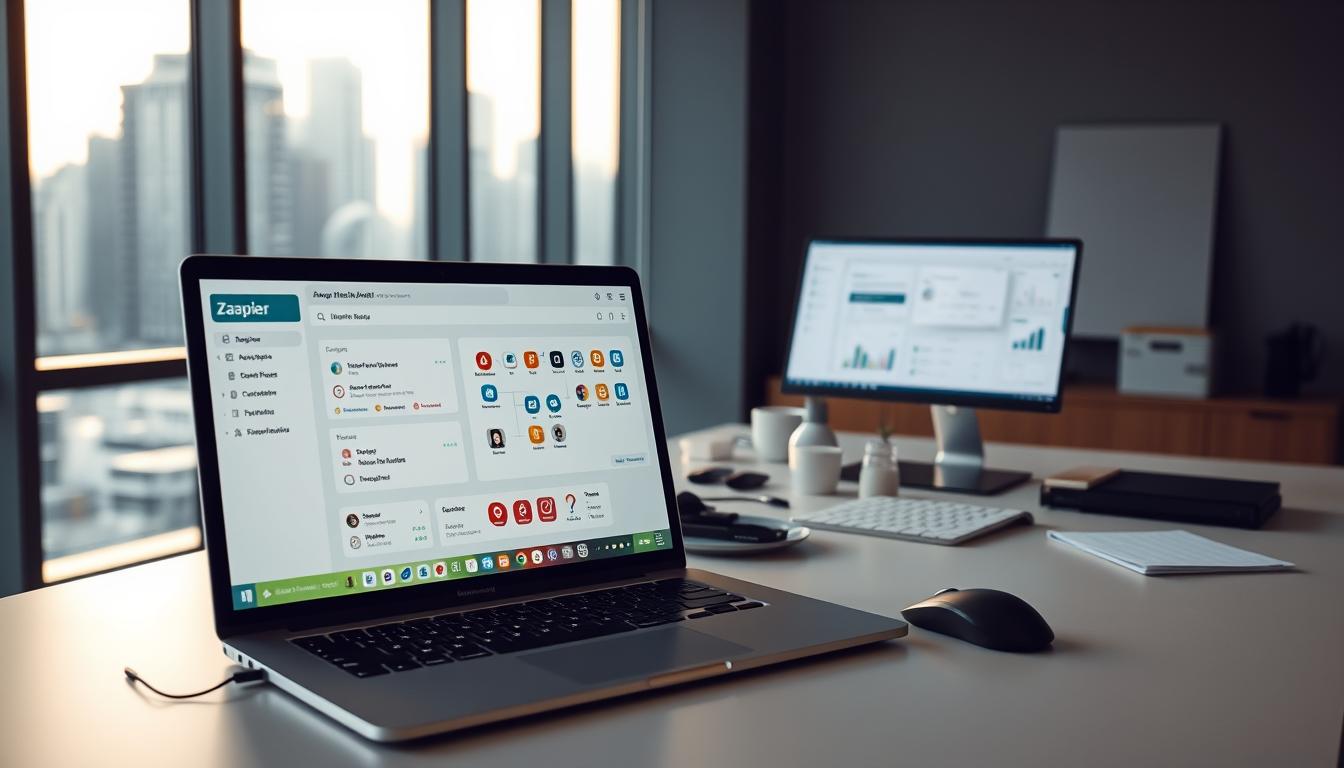Remote jobs are on the rise, with over 15% of jobs in the U.S. now online. This raises a key question: Are you ready to nail your virtual job interview? The way we conduct interviews has changed, making remote job interview prep a must. You need to get good at using technology, communicate clearly, and understand online interactions.
In this guide, we’ll share top interview tips for online success. These tips will help you shine in a crowded virtual job market.
Understanding the Importance of Remote Job Interview Preparation
Preparation for remote job interviews is key in today’s work world. Remote work is becoming more common, and employers use digital tools to check candidates. Being ready for a remote interview shows you’re serious and can handle remote work.
When you prepare well, you show you’re professional and eager for the job. This makes a good impression on employers. It also shows you can handle the challenges of working remotely. For more tips on preparing for remote interviews, check out Remote Job Interview Tips.
Setting Up Your Technology for Success
Having a solid technology setup is key for a remote job interview. It involves several steps to ensure a smooth interview. Preparing your technology helps you feel more confident and professional.
Testing Your Internet Connection
Test your internet connection a day before the interview. This helps spot any issues early. A wired connection is usually more stable than Wi-Fi. Having a backup plan, like a mobile hotspot, is a good idea.
Choosing the Right Equipment
Choosing good equipment for video interviews is important. Get a reliable webcam and microphone for better audio and video. Low-quality devices can cause problems. Always check your equipment before the interview to make sure it works.
Practicing with the Interview Platform
It’s important to get used to the video conferencing platform. Practice calls can help you solve tech problems before the interview. This way, you’ll feel more comfortable and ready for the real thing. Always read the platform’s guidelines to get the most out of it.
Being tech-ready gives you confidence. You can focus more on your interview skills. For more tips on remote job interviews, check out the resource here.
Creating a Professional Interview Space
The place where you do your remote interview is very important. It helps shape how you are seen. A good interview space should be set up well to make you look professional and keep distractions away. Making a good first impression is key, so spending time on the right atmosphere can really help you stand out.
Choosing the Right Background
Choosing the right background is key. A clean, neutral wall without clutter is best. Virtual backgrounds can be useful, but they might seem fake to some. Try to set up a space that looks professional and fits the interview’s mood.
Managing Lighting and Sound
Lighting for video interviews is very important for how you look. Try to use natural light, as it looks the best. If you can’t get natural light, use extra lights to avoid shadows that can be distracting.
Sound quality is also very important. You need a quiet place to talk clearly. Tell people around you to keep quiet so you can talk smoothly. With the right setup, you’ll make a great impression on employers. For more tips on setting up your interview space, check this resource.
Mastering Pre-Interview Connections
Successful remote job interviews often start before the official meeting. By making pre-interview connections, candidates prepare well and make a good first impression. Two key steps are sending confirmation emails and logging on early.
Sending Confirmation Emails
On the day of the interview, sending a confirmation email is a professional courtesy. It shows you’re available and organized. It can also clear up any last-minute details.
A well-crafted confirmation email shows your enthusiasm and professionalism. These traits are important for standing out as a candidate.
Logging On Early
Logging on early helps solve technical issues before the interview starts. Arriving 10-15 minutes early shows you’re proactive and prepared. It shows you value the interview process and can handle remote communication well.

Preparing for Different Types of Interview Questions
Getting ready for interview questions is key to doing well in a remote job interview. Knowing the different types of questions helps you show off your skills. You’ll need to prepare for behavioral questions and technical interviews, each with its own way of asking.
Behavioral Questions in a Remote Context
Behavioral questions check how you handle tough situations, mainly in remote work. They look at your self-motivation, communication, and how you adapt. To ace these, use the STAR method: describe the Situation, Task, Action, and Result.
This method makes your answers clear and to the point. It shows you’re ready to answer these questions well.
Technical Demonstrations
Technical interviews test your skills with live demonstrations. You might need to solve problems or show off your skills right away. It’s important to prepare well for these questions.
When you’re solving problems, explain your thought process. This shows the interviewer how you approach problems. It’s as important as finding the right answer.
Essential Tips for Remote Job Interview Preparation
In remote job interviews, how you communicate and show your body language matters a lot. It’s important to think about how your messages are sent and received online. By focusing on these, you can increase your chances of doing well in the interview.
Effective Communication Strategies
Being clear in a remote interview is key. Use the “15-second rule” to quickly share important points. This grabs the interviewer’s attention right away.
Organize your answers well to make them easy to understand. Pauses help the interviewer digest what you’re saying. This makes the conversation flow better.
Practice your answers to feel confident and ready. This shows you’re prepared and serious about the job.
Body Language in Virtual Settings
Virtual body language is very important. Make sure you sit up straight and are well-lit. This helps you look professional on camera.
Hand gestures can help, but don’t overdo it. Record yourself to see how you look and sound. This helps you match your words with your body language.

| Tips | Details |
|---|---|
| 15-Second Rule | Deliver key information quickly to maintain interest. |
| Clarity in Responses | Organize answers for better comprehension. |
| Positioning | Sit upright with appropriate lighting for a polished look. |
| Gestures | Use moderate hand gestures to enhance engagement. |
| Practice Recording | Review visual communication through self-recording. |
Following Up After Your Remote Job Interview
Following up after an interview is key to making a good impression. A quick response shows you’re professional and really want the job. It shows you’re engaged and a good fit for the role.
Thank-You Notes and Personalized Follow-Ups
Writing thank-you notes right after the interview can make a big difference. These notes should mention specific things you talked about. This shows you were really listening and interested.
Adding a personal touch, like a video or a creative one-pager, can help you stand out. This is even more important in competitive or creative fields.
If you haven’t heard back, it’s okay to send a follow-up email. You can share more information or resources. This shows you’re not giving up and are really interested in the job.
Conclusion
Preparing for a remote job interview is key in today’s job market. You need to master technology and use good communication strategies. Each step is important for success.
Creating a professional environment is essential. You also need to understand remote interactions well. And don’t forget to follow up to show you’re really interested in the job.
Using different techniques in your preparation boosts your confidence. It also shows you can adapt to virtual settings. Learning continuously and making your resume better can help you stand out to hiring managers.
For instance, AI tools can help make your resume fit the job perfectly. This makes you more visible in a competitive job market with strategic insights.
Your hard work shows you’re ready for remote work and committed to growing professionally. By mastering these interview preparation steps, you become a strong candidate. Your approach to the remote job interview conclusion can make a lasting impression, setting you up for success.
FAQ
What are the key components of preparing for a remote job interview?
Preparing for a remote job interview means getting good at using technology. It also means improving your communication skills. You need to know how to work well in virtual settings.
How can I ensure my technology is set up correctly for a remote interview?
First, test your internet connection a day before. Use a wired connection if you can. Have a backup plan, like a mobile hotspot.
Choose the right equipment, like a good webcam and microphone. Make sure you know how to use the video conferencing platform.
What should I consider when creating my interview space?
Your interview space should look clean and professional. Make sure the lighting is right to avoid shadows. Pick a quiet spot to ensure clear audio.
What are some effective communication strategies for remote interviews?
Use the “15-second rule” to share important points quickly. Practice your body language and keep eye contact with the camera. This will help you seem more engaged and present.
How can I prepare for common remote interview questions?
Prepare stories that show you’re self-motivated and adaptable. Use the STAR method for behavioral questions. For technical interviews, practice explaining your thought process during live demonstrations.
What steps should I take before the interview starts?
Send a confirmation email the morning of the interview. Log in 10-15 minutes early. This shows you’re professional and gives time to fix any tech issues.
What should I include in my follow-up after the interview?
Send a thank-you note the same day. Mention specific points you discussed. Personalize your follow-up, like with a video message, to make a stronger impression.
Why is mastering remote communication critical for interviews?
Being good at remote communication shows you’re ready for the job market. It shows you can work well in a remote setting.
I’m into tech, trends, and all things digital. At CrazeNest, I share what’s new, what’s next, and why it matters — always with a curious mind and a creative twist.





